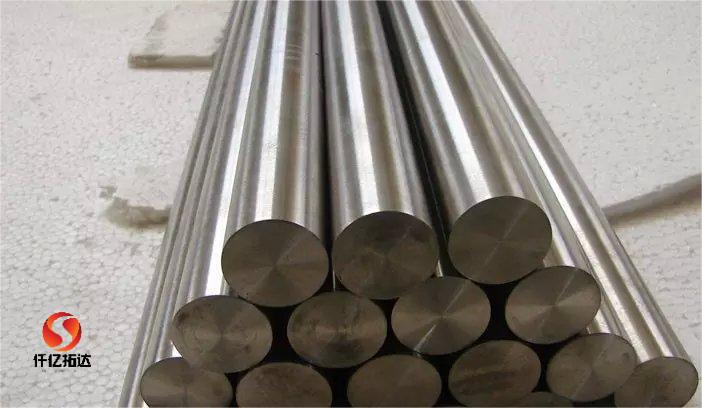About Us
- Company Profile
- Corporate Culture
- Introduction to Titanium Alloy
- Introduction to Titanium Tube
- Introduction to Titanium Rod
- Introduction to Titanium Plate
- Introduction to Nickel Tube
- Introduction to Nickel Plate
- Introduction to Nickel Alloy
- Introduction to Titanium Stirrer
- Application of titanium agitator
- Industrial mixer
- Introduction to pressure instruments
- Introduction to Sensors
-
Titanium Rod:
Production process: The manufacturing process of titanium rods usually includes raw material extraction, gas oxidation or Kroll method to extract high purity titanium blocks, and then through hot processing, forging or extrusion to form a preliminary shape, and finally through heat treatment and cold processing to obtain the required size and performance.
Specifications: The specifications of titanium rods include diameter, length, etc., and common specifications can be customized according to engineering requirements. It has a wide range of diameters to suit the needs of different industries.
Different from other materials: compared with other metal materials, titanium rods have lower density, high strength and excellent corrosion resistance, making them widely used in aviation, medical and other fields.
Uses: Titanium rods are often used in the manufacture of bone repair equipment, chemical equipment parts, etc., and their high strength and biocompatibility make them favored in the medical field.
Market demand: With the continuous development of medical and aviation and other fields, the demand for high-performance metal materials has gradually increased, prompting titanium rods to maintain a good demand in the market.
Variety: Various varieties of titanium rods, including pure titanium rods, titanium alloy rods, etc., to adapt to the requirements of different engineering projects.
Inspection in the production process: strict quality control and inspection to ensure the titanium rod defect-free, the use of ultrasonic detection, magnetic particle detection and other means to ensure that the product meets the standard.
Welding: The welding process of titanium rods requires highly controlled welding techniques to ensure weld quality and overall performance.
Surface treatment: The surface treatment of titanium rods includes polishing, pickling and other processes to improve its surface finish and corrosion resistance.
Mechanical properties and chemical composition: The mechanical properties of titanium rods depend on the specific alloy composition, and the chemical composition usually includes iron, oxygen, carbon and other elements.
-

-
